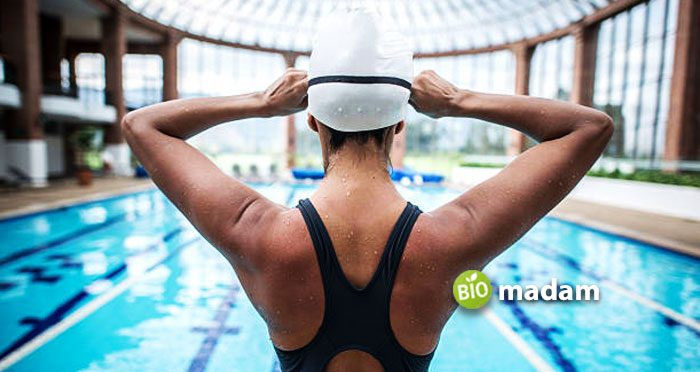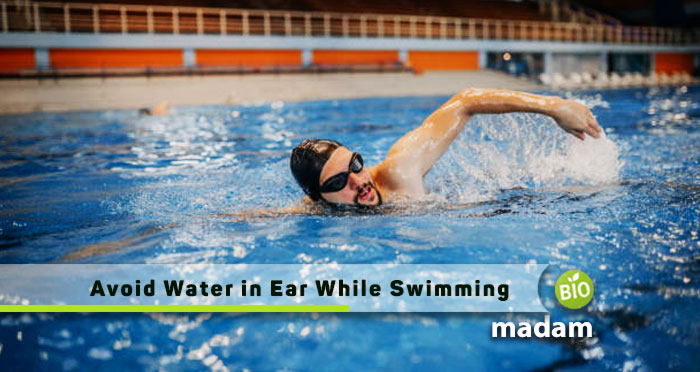Recently updated on September 16th, 2022 at 11:30 am
Swimming is enjoyable until you get water in your ears, as it can be quite uncomfortable. Getting water in the ear while swimming gives a feeling of fullness in the ear and affects your hearing ability over time. Though, if you do not remove the water from the ear, it can lead to infection. Moist areas provide an excellent environment for bacterial infection.
But what’s better than removing water from the ear? Preventing it!
7 Amazing Ideas to keep Ear Dry during and after Swimming
You can use some of the below-mentioned methods to avoid water in-ear while swimming. It saves you from the discomfort and long-term issues caused by the infection.
Ear Plugs
One of the best ways to avoid water in the ears is earplugs. They help keep your ears dry by acting as a barrier between the surroundings and the ear canal. So, when you are swimming, wearing earplugs allows you to worry less and enjoy the swim. Earplugs come in various materials and are usually made of medical-grade soft silicon. It is best to choose the completely waterproof ones which suit you the best.
Ear Bands
Ear bands are a blessing for swimmers as they are more convenient than earplugs to avoid water in the ear while swimming. They are made of elastic waterproof material that fits across your head, properly covering your ears. Some people also use earplugs with ear bands for added protection, but it can be quite uncomfortable. Ear bands independently are enough to save you from getting water into your ears.
Swim Caps

Swim caps are not as good as earplugs or ear bands. But, they can be used when no other option is available. They are best when used with ear bands. Swim caps keep hair dry, while the ear band helps prevent water in the ear. Select a latex or silicone cap to make sure it keeps you dry while you enjoy the swim.
Keep Your Ears Dry
Most frequent men and women swimmers rely on the methods as mentioned earlier to avoid water in the ear while swimming. Some professional swimmers do not find them convenient and prefer to clean their ears thoroughly after the swim.
If you are wondering that they probably clean the ears with their fingers – No!
They don’t, and neither should you.
Water can stay in the ear and cause Swimmer’s ear. Dry your ears using the ear lobe technique, hairdryer, or a chemical method. Let’s tell you about a few of them quickly.
Ear Lobe Technique
If you are afraid of adding any chemicals to your ear, this technique can be the best choice. Just tilt your head to one side and gently rub your earlobe. This is believed to stimulate the movement of water and help you get rid of it soon.
Hair Dryer

Using a hairdryer is by far the easiest way of removing water from the ears. Plugin your hairdryer and choose the lowest setting. Keep it a few inches away from your ear and turn it on. Do not give a lot of heat to the ears. Instead, keep the hair dryer at a distance to give enough heat for the water to dry only.
Rubbing Alcohol + White Vinegar
Rubbing alcohol and white vinegar have anti-microbial properties that help keep your ears safe from infection. Mixing half parts of the rubbing alcohol and white vinegar and using a few drops in both ears after swimming is recommended.
How not to Avoid Water in Ear while Swimming
While some tips can help keep your ears dry, some common tricks do not work. Here’s what you should not do to avoid water in your ear.
- Do not stuff your ears with cotton balls or tissues. Cotton and tissue papers are not water-resistant and cannot keep your ears dry correctly while swimming.
- Avoid using hydrogen peroxide to dry your ears as it may also damage healthy tissues besides bacteria.
The Bottom Line
Swimming is beneficial and all fun, but it can cause discomfort if you do not cover your ears adequately. Water can stay in your ear and cause Swimmer’s ear. You can avoid water in-ear while swimming by using earplugs, ear bands, or swim caps. Yet you can dry water in the ear by using a hairdryer or rubbing alcohol to avoid infection. However, always consult a physician when you experience symptoms of Swimmer’s ear.

Jeannie has achieved her Master’s degree in science and technology and is further pursuing a Ph.D. She desires to provide you the validated knowledge about science, technology, and the environment through writing articles.

